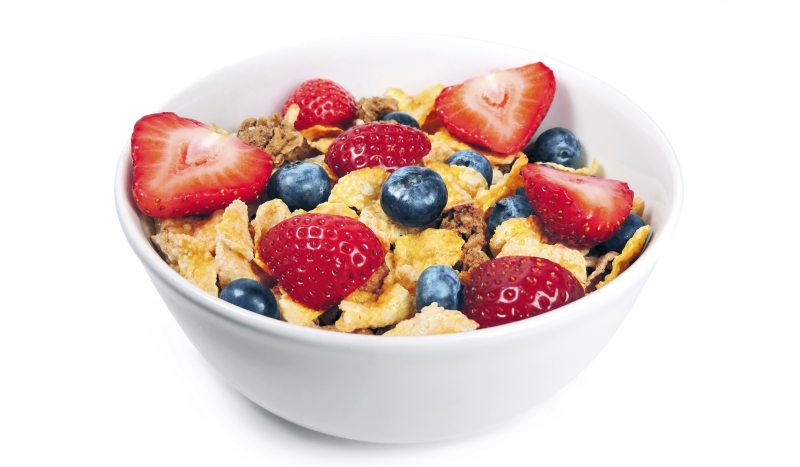
Calories in Breakfast Cereals
Breakfast cereals are very popular in the UK and can be eaten at any time of the day. But certain cereals can contain a lot of calories and may not be as healthy as you think.
Breakfast cereals are generally made from a base of oats, rice or wheat and eaten in the morning in a bowl with milk. The claim that many manufacturers make that breakfast is the most important meal of the day is not without a grain of truth.
Eating Cereals in the Morning
Eating in the morning helps to boost your metabolism and gives you the energy you need to start the day in a healthy and positive way. However, it greatly depends what kind of breakfast cereals you choose to eat.
Sugar in Cereals
Many of them contain a far higher percentage of sugar, fat or salt than is recommended. Some contain as much sugar as a bar of chocolate. So you need to really have a look at the ingredients and nutritional information on the box.
Children, in particular, tend to love sugary cereals but this is not a particularly healthy way to start their day. It is unfortunately true that the plainer the cereal, the lower the calorie count is likely to be.
Compare Cereals
A 100g of cornflakes contains 370 calories while bran flakes are even lower at 320 calories per 100g. When sugar is added to sweet cereals, this increases the calories. For example, coco pops contains 400 calories per 100g. Muesli contains slightly higher calories than plain cereal but if unsweetened, it can be a good source of vitamins and minerals. Try using semi-skimmed or low fat milk instead of full fat to keep your calorie consumption down.
Most Popular
- › Vitamins & Minerals in Foods
- › Home Gyms for Exercising
- › Treadmills & Running Machines
- › Detox for Weight Management
- › Your Calorie Intake for Weight Loss
- › The Risks of Dieting
- › What is Healthy Weight Loss?
- › The Effects of Alcohol on Your Health & Weight
- › What Is Diabetes?
- › Activities for Getting Fit
You may also be interested in...
Sugar In Food
Find out more about the sugar in food from our comprehensive site. With simple information about free diets and foods without beet or cane versions you need look no longerLow Sugar Foods
Read whether low sugar foods like snacks or 'diet' foods will hepl with your goal of dieting. From special recipes through to key advice slimming.co.uk has it allSugar Intolerance
Are you a parent who is dealing with sugar intolerance in your child? Learn more about this dietary condition on slimming.co.uk!Sugar Busters Diet Plan
Read all about the Sugar Busters! diet plan as a way for you to lose weight. We have details on a wide range of diet plans, so check out what's best for you now.Artifical Sweeteners to Replace Sugar
Artificial sweeteners are used in many products instead of natural sugar - they are a sugar replacement! Find out more about whether they affect your health.
